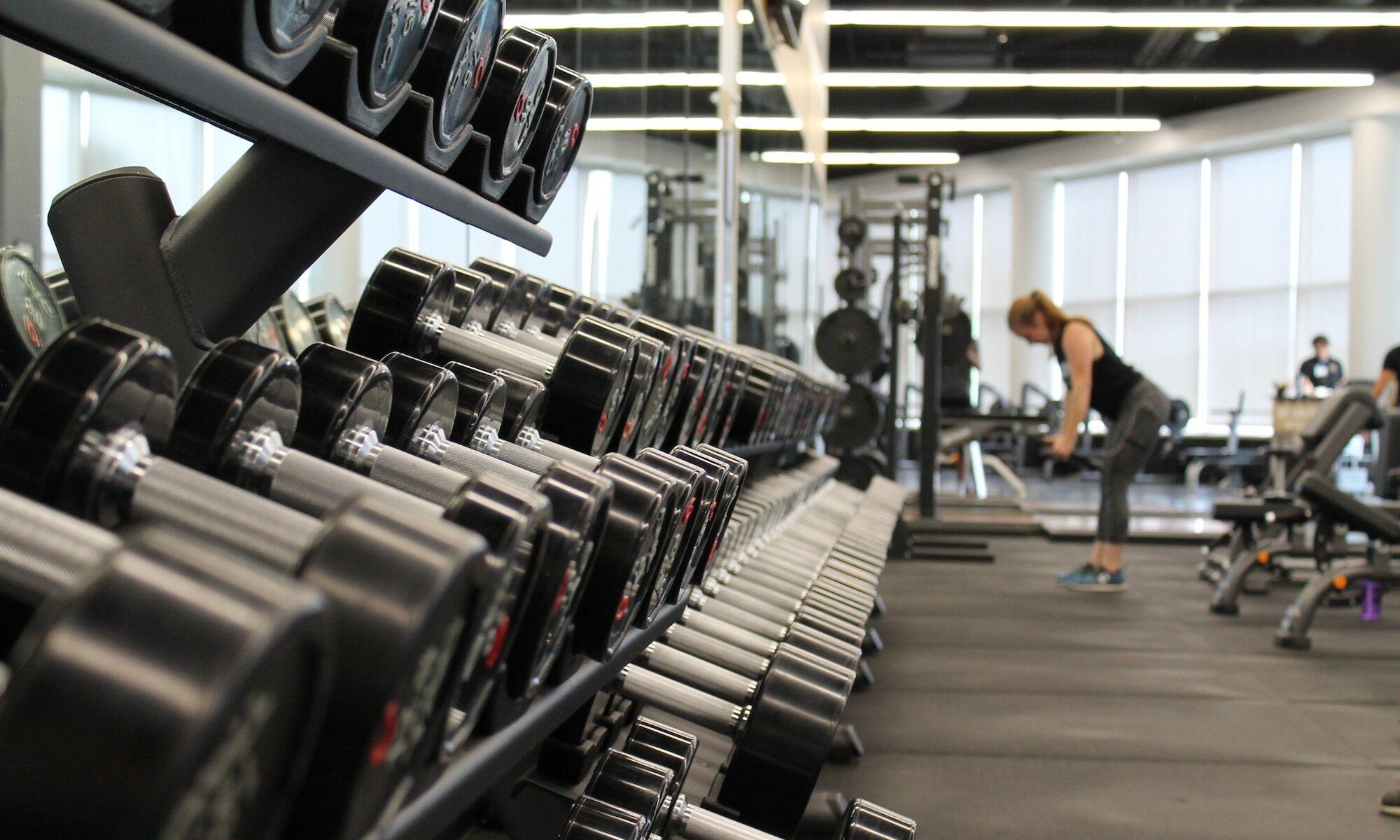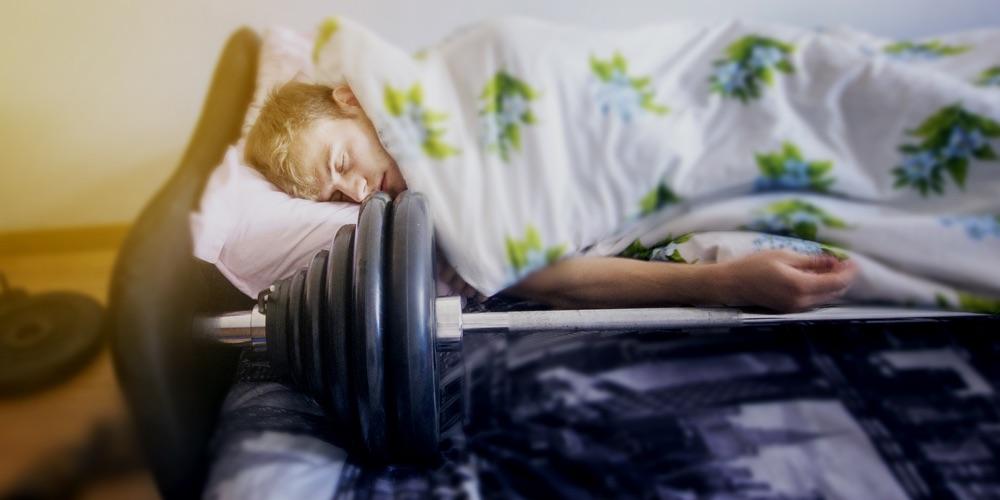In “The Science of Sleep and Recovery for Athletes: Essential Insights and Strategies,” discover the vital role that sleep plays in an athlete’s performance and recovery. This article explores the deep connection between quality sleep and an athlete’s physical and mental well-being. Gain valuable insights into the science behind sleep and how it can optimize athletic performance. Furthermore, uncover effective strategies to ensure athletes get the restorative sleep they need to excel in their respective sports. Whether you’re a professional athlete or a recreational enthusiast, this article will enlighten you on the science-backed approaches to sleep and recovery that can elevate your athletic performance to new heights.
Importance of Sleep for Athletes
Effects of Sleep on Athletic Performance
Sleep plays a crucial role in enhancing athletic performance. When you consistently get enough quality sleep, your reaction time, coordination, and accuracy improve, allowing you to perform at your best. Lack of sleep, on the other hand, can have negative effects on your performance. It can lead to decreased speed, strength, and endurance, making it harder for you to reach your full potential as an athlete.
Benefits of Adequate Sleep for Athletes
Getting enough sleep provides numerous benefits for athletes. Firstly, it promotes muscle recovery and repair, helping to reduce the risk of injuries and improving overall athletic performance. Additionally, sleep enhances memory consolidation, allowing you to better learn and retain new skills and strategies. Furthermore, sufficient sleep improves your immune function, helping to prevent illness and keep you healthy throughout your training and competition periods.
Negative Impact of Sleep Deprivation on Athletes
Sleep deprivation can have detrimental effects on athletes. It impairs cognitive function, negatively impacting decision-making, problem-solving, and concentration abilities. Additionally, inadequate sleep alters hormone levels, leading to increased levels of cortisol, which can hinder muscle recovery and growth. Moreover, sleep deprivation can result in mood disturbances, such as increased levels of irritability, anxiety, and depression, affecting both your athletic performance and overall well-being.
Understanding Sleep Cycles
Stages of Sleep
Sleep is divided into two main stages: non-REM (rapid eye movement) sleep and REM sleep. Non-REM sleep is further divided into three stages: N1, N2, and N3. N1 is a light sleep stage, N2 is a deeper sleep stage where the majority of our sleep occurs, and N3 is the deep sleep stage associated with physical restoration and growth.
REM Sleep and its Significance
REM sleep is characterized by rapid eye movements, vivid dreaming, and increased brain activity. It is crucial for cognitive restoration and emotional regulation. During REM sleep, your brain strengthens neural connections, helping with memory consolidation and learning. It is also believed to play a role in creativity and problem-solving skills.
Non-REM Sleep and its Benefits
Non-REM sleep, specifically the deep sleep stage (N3), is essential for physical restoration and recovery. During this stage, your body repairs damaged tissues, strengthens muscles, and releases growth hormones. Non-REM sleep is critical for athletes as it promotes muscle growth, overall recovery, and increased energy levels for optimal performance.
Optimal Sleep Duration for Athletes
Recommended Sleep Guidelines for Athletes
For athletes, it is generally recommended to aim for 7-9 hours of sleep per night. This duration allows for sufficient time to go through multiple sleep cycles, ensuring you obtain enough deep sleep and REM sleep for optimal physical and cognitive recovery. However, individual athletes may have varying sleep needs, and it’s important to listen to your body’s signals and adjust your sleep duration accordingly.
Individual Variations and Sleep Needs
While the recommended sleep duration for athletes falls within the 7-9 hour range, it is essential to recognize that individual variations exist. Factors such as age, training load, and genetic predispositions can influence an athlete’s specific sleep needs. Some individuals may require slightly more or less sleep to feel fully rested and perform at their best. It’s crucial to pay attention to your body’s signals and make adjustments to your sleep routine accordingly.
Factors Influencing Sleep Duration
Several factors can influence the duration of sleep an athlete needs. Training intensity, volume, and frequency can impact an athlete’s sleep needs, with more demanding training regimens often requiring longer sleep durations. Additionally, factors such as stress, travel, and competition schedules can disrupt sleep patterns and impact the quality and quantity of sleep an athlete obtains. It’s important to consider these factors and make appropriate adjustments to ensure adequate sleep is prioritized.
Sleep Quality and Environment
Creating an Ideal Sleep Environment
To optimize sleep quality, it’s important to create an ideal sleep environment. Your sleep environment should be cool, dark, and quiet. Consider investing in blackout curtains or an eye mask to block out any external light sources. Use earplugs or a white noise machine to minimize noise disruptions. Additionally, ensure your mattress and pillows provide adequate support and comfort for a restful sleep.
Impact of Noise and Light on Sleep Quality
Noise and light can significantly impact the quality of your sleep. Exposure to excessive noise can disrupt sleep patterns and prevent you from entering deep, restorative sleep stages. Likewise, exposure to bright light, especially blue light emitted by electronic devices, can interfere with your body’s natural sleep-wake cycle. Minimizing noise and light disturbances in your sleep environment can help ensure a more restful and restorative sleep.
Effects of Temperature and Humidity on Sleep
Temperature and humidity levels in your sleep environment can also affect sleep quality. Your body temperature naturally decreases during sleep, so it’s important to keep your bedroom cool to facilitate this process. Ideally, aim for a room temperature between 60-67°F (15-19°C). Additionally, excessive humidity can lead to discomfort and disrupt sleep. Using a dehumidifier or adjusting your bedroom’s ventilation can help maintain optimal sleep conditions.
Monitoring Sleep and Recovery
Using Wearable Technology for Sleep Tracking
Wearable technology, such as fitness trackers and smartwatches, can be valuable tools for monitoring sleep and recovery. These devices use sensors to track your sleep patterns, including duration, time spent in different sleep stages, and quality of sleep. By analyzing this data, you can gain insights into your sleep habits and make necessary adjustments to optimize your recovery and performance.
Sleep Metrics and their Interpretation
Sleep trackers provide various metrics that can help you understand your sleep patterns. These metrics may include total sleep time, sleep efficiency, time spent in each sleep stage, and the number of awakenings during the night. Understanding these metrics can allow you to identify any issues or patterns affecting your sleep quality and make informed decisions to improve your recovery and performance.
Tracking Recovery Indicators during Sleep
Sleep plays a crucial role in the recovery process, and monitoring recovery indicators during sleep can provide valuable insights. Some wearable devices offer features that track heart rate variability (HRV) and body temperature, which can indicate your body’s level of recovery. By tracking these indicators, you can adjust your training load and recovery strategies to ensure optimal performance and minimize the risk of overtraining.
Strategies for Improving Sleep Quality
Establishing a Consistent Sleep Schedule
Establishing a consistent sleep schedule is a fundamental strategy for improving sleep quality. Aim to go to bed and wake up at the same time each day, even on weekends. This consistency helps regulate your body’s internal clock, promoting better sleep quality and overall well-being. Avoiding napping close to bedtime and limiting exposure to stimulating activities, such as electronics and intense exercise, before bed can also contribute to better sleep.
Creating a Relaxing Bedtime Routine
Creating a relaxing bedtime routine can signal to your body that it’s time to wind down and prepare for sleep. Engage in calming activities, such as reading a book, taking a warm bath, or practicing relaxation techniques like deep breathing or meditation. Avoid engaging in stimulating or stressful activities that can interfere with your ability to relax and fall asleep.
Optimizing Nutrition and Hydration for Sleep
Nutrition and hydration play a significant role in sleep quality. Avoid consuming large meals or heavy, spicy, or greasy foods close to bedtime, as they can cause discomfort and disrupt sleep. Instead, opt for light, easily digestible snacks that contain sleep-promoting nutrients, such as complex carbohydrates, lean proteins, and magnesium-rich foods. Staying hydrated throughout the day, while also limiting excessive fluid intake before bed, can contribute to better sleep quality.
Nutrition and Sleep
Foods that Promote Sleep
Certain foods contain nutrients that can promote better sleep. For example, foods rich in tryptophan, such as turkey, dairy products, and nuts, can help increase the production of serotonin, a precursor to melatonin, the sleep hormone. Other sleep-promoting foods include whole grains, bananas, cherries, and herbal teas like chamomile. Incorporating these foods into your diet, especially in the evening, can support better sleep quality.
Timing of Meals and its Impact on Sleep
The timing of your meals can also impact your sleep quality. It’s generally recommended to avoid heavy meals or large amounts of food close to bedtime, as digestion can disrupt sleep. Aim to have your last meal or snack at least 2-3 hours before bed to allow for proper digestion. If you feel hungry before bedtime, opt for a light, sleep-promoting snack to satisfy cravings without causing digestive discomfort.
Effects of Caffeine and Alcohol on Sleep
Caffeine and alcohol can significantly affect your sleep. Caffeine is a stimulant that can interfere with falling asleep and disrupt the overall quality of your sleep. It is advisable to avoid consuming caffeinated beverages or foods close to bedtime. Similarly, while alcohol may initially make you feel drowsy, it can disrupt the natural sleep cycle, leading to fragmented and less restful sleep. It’s best to limit or avoid alcohol consumption, especially in the evening, to optimize your sleep quality.
Sleep Disorders and Athletes
Common Sleep Disorders among Athletes
Athletes are not immune to sleep disorders. Common sleep disorders that can affect athletes include insomnia, sleep apnea, restless leg syndrome, and circadian rhythm disorders. These disorders can significantly impact sleep quality, exacerbate daytime fatigue, and hinder athletic performance. Recognizing the signs and symptoms of sleep disorders is important so that appropriate interventions can be sought.
Impact of Sleep Disorders on Performance
Sleep disorders can have a profound negative impact on an athlete’s performance. Insufficient sleep, fragmented sleep, or poor sleep quality can impair cognitive function, decision-making, motor skills, and reaction time. Athletes with sleep disorders may experience decreased endurance, slower recovery, increased injury risk, and difficulties with mental focus and concentration. Addressing sleep disorders is crucial for optimizing athletic performance and overall well-being.
Seeking Professional Help for Sleep Issues
If you suspect you have a sleep disorder or are experiencing persistent sleep issues, it is essential to seek professional help. Consulting a healthcare professional, such as a sleep specialist or sports medicine physician, can help diagnose and treat any underlying sleep disorders. They can provide personalized recommendations, interventions, and treatment options tailored to your specific needs, ensuring you receive the necessary support to optimize your sleep and athletic performance.
Napping as a Recovery Strategy
Benefits of Power Naps for Athletes
Napping can be an effective strategy to enhance recovery in athletes. Power naps, short naps lasting around 10-20 minutes, can help alleviate fatigue, promote alertness, and enhance cognitive function. These quick naps can provide a boost of energy and help you feel refreshed during training or competition, especially when facing sleep deficits or long periods of wakefulness.
Optimal Duration and Timing of Naps
The optimal duration and timing of naps may vary depending on individual preferences and sleep needs. Generally, power naps lasting around 10-20 minutes are recommended, as they can provide restorative benefits without causing grogginess upon waking. It is important to avoid napping too close to bedtime or for extended periods, as this can interfere with your nighttime sleep. Experiment with different nap durations and timings to discover what works best for you.
Incorporating Naps into Training Schedules
Incorporating naps into your training schedule can enhance your overall recovery and performance. If your training schedule allows, consider scheduling a power nap during the day, especially after intense workouts or periods of high mental exertion. Finding a quiet, comfortable space to rest and recharge can contribute to faster recovery, increased alertness, and improved productivity throughout the day.
Sleep and Injury Risk
The Relationship Between Sleep and Injury
There is a clear relationship between sleep and injury risk among athletes. Inadequate sleep can impair coordination, reaction time, and decision-making abilities, increasing the likelihood of accidents and injuries during training or competition. Additionally, insufficient sleep can compromise your immune function, making you more susceptible to illnesses and infections, which can also hinder your athletic performance and recovery.
Reducing the Risk of Injuries through Quality Sleep
Prioritizing quality sleep can help reduce the risk of injuries in athletes. By ensuring you obtain adequate sleep, you enhance your cognitive function, coordination, and reaction time, reducing the likelihood of accidents and mistakes. Furthermore, sufficient sleep supports optimal immune function, improving your body’s ability to fight off infections and speed up injury recovery. By taking care of your sleep, you invest in your overall health and injury prevention.
Importance of Sleep in Injury Rehabilitation
Sleep plays a critical role during injury rehabilitation. It is during sleep that your body repairs damaged tissues, replenishes energy stores, and optimizes the healing process. Adequate sleep supports the recovery and rehabilitation process, allowing your body to heal faster and more efficiently. If you’re recovering from an injury, prioritize quality sleep alongside your rehabilitation efforts to maximize your recovery potential and promote optimal healing.
In conclusion, sleep is a vital component of an athlete’s overall performance and well-being. Adequate sleep supports physical and cognitive recovery, enhances athletic performance, and reduces the risk of injuries. By understanding the different sleep stages, monitoring sleep quality, and implementing strategies to optimize sleep duration and environment, athletes can maximize their potential both on and off the field. Prioritizing sleep and seeking professional help when needed can make a significant difference in an athlete’s overall health, performance, and longevity in their athletic journey. So, make sleep a priority and reap the benefits of quality rest.


